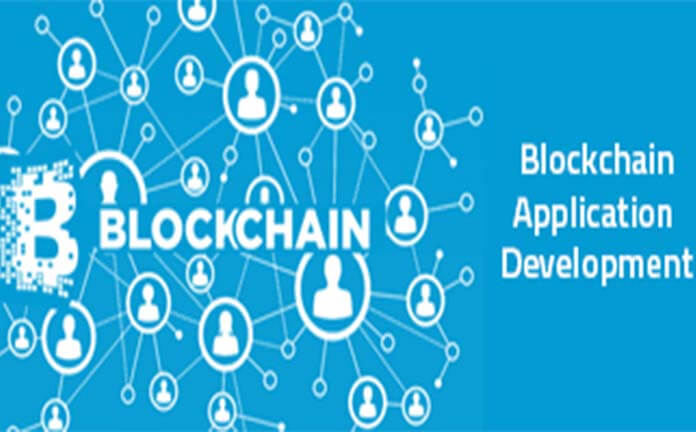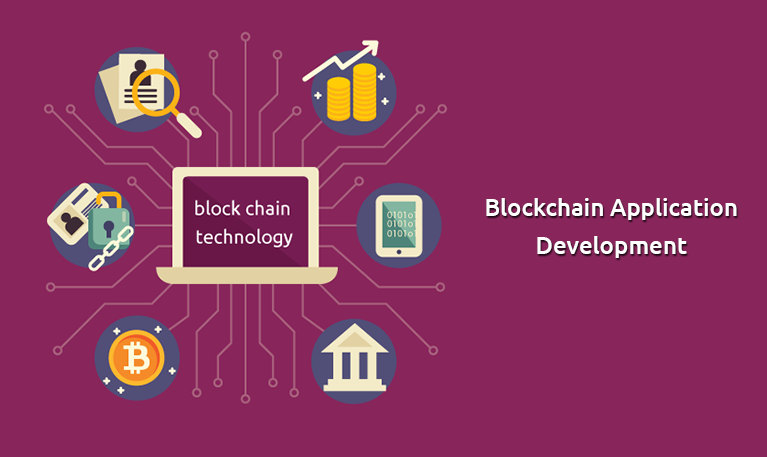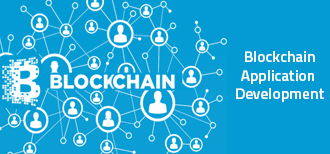BlockChain for voting e-governance development and benefits

Here, Given complete information about BlochChain for Voting e-governance development
The voting systems in different parts of the world and particularly in America have been deemed as archaic and old-fashioned for quite a long time. Not only the voting machines are difficult to, use out of date and insecure but they are also supported by a vendor offering proprietary software for the purpose of vote-counting which means that its inner operations are kept a secret. Such factors make the vote calculating software vulnerable to bugs which in turn can change votes, delete votes or add votes without the people in-charge having the slightest of ideas as to what happened. Transparency is therefore often difficult to maintain in the election process which is increasingly becoming rigged and manipulated.
Under such circumstances, many experts are considering open source Blockchain technology as the ultimate answer to resolving such issues with the election process. Over the last few years, researchers are championing the cause of Blockchain technology as they believe that it can be just the tailored solution that they need to create a transparent and secure voting system. Blockchain technology can help in creating publicly viewable, signed and time-stamped records or transactions that cannot be deleted or altered.
The ballot data or logging election records on Blockchain will make it easier for the general public to inspect the granular election data all by themselves. The system also helps to develop a permanent and secure record that prevents any kind of tampering with the election data.
The time-stamped Blockchain records can not only help to make sure that all the data that are added later are detectable immediately but they can also prevent any kind of manipulation with the election records. In fact, when checked with the paper ballots that have been used for casting the votes, it becomes completely impossible to change the election results without being detected.
However, this is something that cannot be done with 100% electronic voting systems. While interactive ballots, tablets, apps and touchscreen devices can be all used to facilitate e-governance, it is still necessary to have a system that is operated by Blockchain technology as it can check on the intent of the voters and make sure that there is no tampering with the system.

How Blockchain technology can be used for e-governance
The decentralized nature and immutability of the public Blockchain networks like Ethereum and Bitcoin can make it possible for the governments to effectively process large volumes of highly sensitive data on a transparent and unchangeable platform.
Within the past few years, numerous governments across the world have been successfully able to harness the powers and features of blockchain technology for managing electoral votes, digital identities, and land registry information. Although not every country have been able to work on Blockchain technology and explore the best of what it has to offer, governments of US, Japan, and South Korea have decided to work with this technology and see how it can help in effective e-governance.
Being one of the smartest data processing technologies that have ever been created, Blockchain finds extensive usage in various government services and functions. Experts strongly believe that blockchain technology can eventually replace the existing infrastructure and working methods, like electoral votes as well as digitization of ownership.
Blockchain technology also allows the governments in digitizing their registries such as commercial registry, land registry, and marriage registry. It can also facilitate secure distribution and allocation of various forms of social benefits. With effective implementation of blockchain technology applications, the governments can easily foster public trust as well as increase engagement by the citizens.
Once blockchain technology is applied for the purpose of e-voting, it can help governments to daily process large volumes of transactions on various public blockchain networks. The same is applicable for real estate registries whose functionalities can be improved greatly with blockchain technology. Such efficiency can enhance the potential of blockchain technology and facilitate its adoption on a commercial basis.
Blockchain technology stands out from other technologies for its features like decentralization and immutability. Such characteristics provide blockchain with a major edge over the other existing technologies as it ensures complete protection of information which can be made readily accessible to approved users. The technology also allows the government as well as the public to easily verify whether any information associated with elections or otherwise have been altered or changed. The transactions taking place on a Blockchain technology system are recorded on a dedicated transparent ledger that is completely protected from security breaches or hacks.
The decentralization and immutability features of Blockchain technology offer users with two main crucial advantages. Firstly, the validity of some official document that is stored on blockchain can be easily and reliably verified and evaluated at any point of time. Additionally, the decentralized nature of Blockchain technology allows the governments to smartly digitize their services while at the same time eliminating the need of creating any central storage space for all sensitive data which can work as a lucrative target for the hackers.
Nevertheless, one of the drawbacks of the Blockchain technology is that the advantages of immutability and decentralization eventually come with major tradeoffs and costs. They also do not come with the benefit of scalability when it comes to dealing with large packets of data.
Although the public blockchains are highly secure and practically impervious to any kind of security breaches since they are distributed evenly and do not have any single point of functionality or failure, the blockchain systems struggle to eventually process large volumes of data at rather fast speeds. To send and receive data effectively, a blockchain network should have all of its nodes perfectly synchronized on the network. This can help to make sure that all information is properly confirmed and verified.
In order to ease the load on the nodes and users, one can eliminate the miners as well as the processing of information within such a network through the stakeholders. This can also facilitate the migration from PoW (proof-of-work) consensus protocol to PoS (proof-of-stake) consensus protocol algorithm. Within a PoW-oriented system, the miners make use of computing power and electricity to solve the blocks and effectively process information. With a PoS-oriented system, the miners are practically nonexistent and the ones holding the cryptocurrency can work on processing the data without any need for computing power and electricity. The PoS principle is actually based on the concept that the stakeholders or cryptocurrency holders are not going to make negative decisions deliberately for the network. Experts believe that migration of the public blockchain systems like Ethereum to the PoS can help in improving scalability.
Currently, there are many key aspects of Blockchain value proposition which the present technology do not work on. For example, shifting from the proof-of-work to the proof-of-stake is a step that can greatly enhance performance and scalability. There is still a long way to go for experts to come up with a completely decentralized and traditionally centralized development paradigm that can be used for the public blockchains.
The challenges of using Blockchain technology for online voting
Using Blockchain technology can be one of the best things to ever happen in the world of online voting. In fact, Blockchain technology can not only make online voting more convenient but also quite intuitive. It can also increase the number of voters. The idea of people being able to vote for their candidates of choice with the help of an app or an official website is really great. In fact, it can get rid of archaic processes such as standing in long queues at the polling sites, go through complex voter registration processes and counting ballots physically. However, the truth of the matter is that it is probably going to be a long time before people can start voting for their candidates online for government elections.
The reason for such delays is not a government that is slow to adopt new ideas or is averse to new technology. The challenge for online voting is that even by having Blockchain technology in place, there is no guarantee that the device used for placing the votes such as a desktop computer or a smartphone will not be compromised. The paper ballots that have been used traditionally offer two distinct advantages over fully electronic or online voting process. Firstly, the paper ballots are trusted by everyone. All the voters understand the way they work and are deemed user-friendly. Plenty of people are not computer-literate and for them, the best way to cast their votes would be to use paper ballots.
Another reason why many people prefer to vote through paper ballots is that they leave behind the evidence of their physical presence. Purely electronic or online voting system is mainly based on numerical counts that are collected in a virtual system. As a result, they do not offer much scope for re-counting or a thorough investigation. This is one of the most pressing issues which cannot be solved even by Blockchain technology. The reason for this is that a system like Blockchain which records the votes collected in a tamper-proof way can only offer a simple reviewing of computer and software’s calculations when it comes to auditing those records. In other words, it can never help in discovering the actual intent of the voters.
Is Blockchain technology not suitable for E-Governance?
Although it is true that blockchain technology can be used for a broad range of applications, most researchers strongly believe that it is not suitable for e-governance due to its limited scalability. Up until now, Ethereum stands as the most scalable and flexible Blockchain network within the worldwide cryptocurrency market, carrying out nearly 1.3 million online transactions on a daily basis. Therefore Ethereum has a larger daily transaction volume when compared to all other cryptocurrencies combined, including the famous Bitcoin.
However, even with flexible blockchain network of Ethereum’s the system lacks the efficiency and capacity of accommodating millions of voters on the blockchain. Also at the same time, the public blockchains can manage only about a million transactions on a daily basis. Under such circumstances, the governments in different parts of the world have started exploring the various methods by which they can use blockchains to effectively process large volumes of information and transactions outside of main blockchain network. They are also looking to send a compiled set of collected data or information to main blockchain.

The Brazilian government experimented with a hashing system while working with the Ethereum-oriented electoral system to combine the daily votes into one single transaction and then present it to main Ethereum blockchain network. Such a system making use of hashing can help in processing bulk amounts of information and compile it into a single transaction which can be processed more efficiently at lower costs. Blockchain Development Company USA one of the things that should be kept in mind when working with such technologies and systems is that they can only help in managing challenges like time stamping. In other words, such a technique is still not efficient enough to resolve the scalability on an overall basis. Due to this reason, it is still better to work with traditional database systems while managing the needs of governance, digital identifications, and land registry.
Blockchain Development Company USA the techniques used by the Brazilian government like committing to data and time stamping can offer certain benefits when it comes to making sure that the governance data has not been changed over time. Nevertheless, such techniques still harbor the possibility of the government keeping a detailed track of the personal information of general public and then keeping it stored in the blockchain. Under such circumstances, it is always better to work with traditional database replication methods as it can help in avoiding such hassles.
The efficiency of a blockchain application still would depend on the intention of two parties who are not sure about how to start working on a process of shared computation. Hence it can be said that while blockchain can be used for some specific aspects of running governance, there is still a long way to go before we can start to use it extensively for carrying out voting processes.

